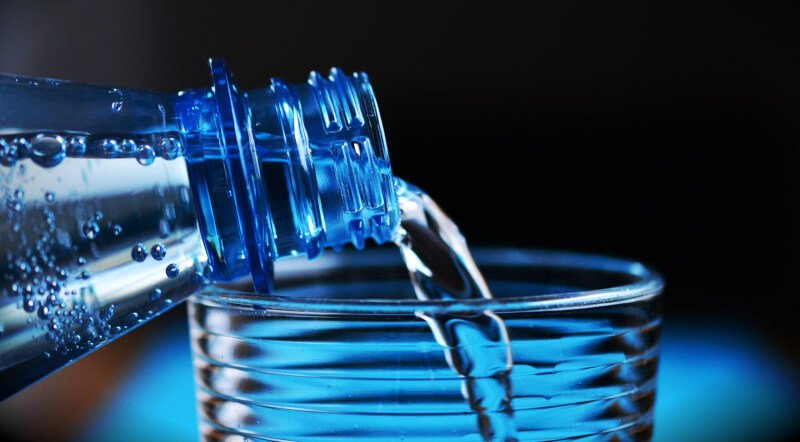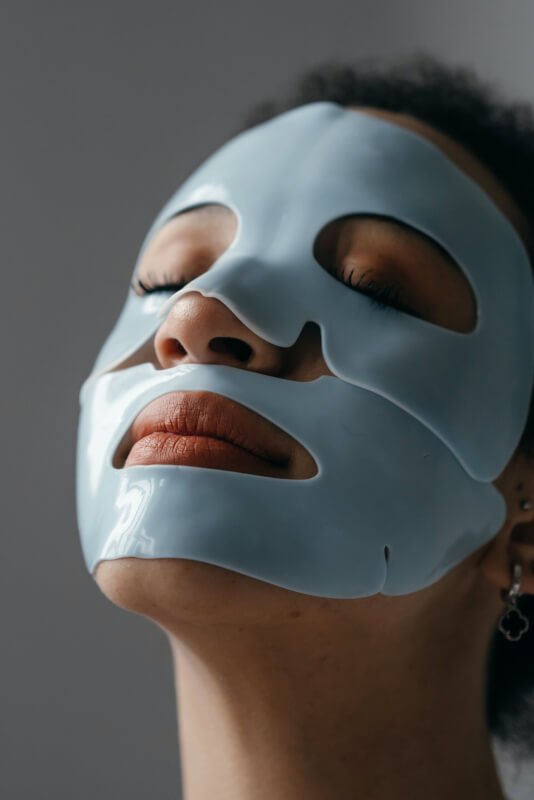In order to keep your feathered friend healthy and happy, it is crucial to understand the importance of hydration for birds. Just like humans, birds rely on water to carry out vital functions in their bodies. This article will explore why hydration is essential for birds, and provide you with practical ways to ensure that your bird drinks enough water. By implementing these strategies, you can ensure that your feathered companion remains healthy and hydrated, promoting their overall well-being.
Why is hydration important for birds?
Hydration is crucial for the overall health and well-being of birds. Just like humans, birds rely on water to survive and thrive. Water plays several vital roles in their bodies, including maintaining overall health, regulating body temperature, supporting digestion, and promoting proper organ function.
Maintaining overall health
Proper hydration is essential for maintaining overall health in birds. Water is necessary for various bodily functions, including the transport of nutrients, elimination of waste, and lubrication of joints. It also helps maintain healthy skin, feathers, and beak.
Regulating body temperature
Birds have a higher body temperature than humans, and they lack the ability to sweat. Therefore, they depend on water to regulate their body temperature. They use water to cool themselves by panting and moistening their feathers.
Supporting digestion
Water plays a crucial role in digestion for birds. It helps break down food and aids in the absorption of nutrients. Without adequate hydration, birds may experience difficulties in digesting food properly, leading to digestive disorders and malnutrition.
Promoting proper organ function
The organs in a bird’s body require water to function properly. From the heart to the liver, kidneys, and even the brain, water is essential for maintaining optimal organ function. Proper hydration ensures that all the organs can perform their functions efficiently, keeping the bird healthy and active.
Signs of dehydration in birds
It’s important for bird owners to be aware of the signs of dehydration. Recognizing these signs early can help ensure prompt intervention and prevent potentially serious health issues.
Dry or discolored beak
One of the first signs of dehydration in birds is a dry or discolored beak. A healthy bird’s beak should appear moist and smooth. If you notice that your bird’s beak is dry or has changed in color, it may be a sign of dehydration.
Sunken eyes
Dehydration can also cause a bird’s eyes to appear sunken. If you notice a noticeable change in the appearance of your bird’s eyes, it’s essential to monitor their water intake and seek veterinary attention if necessary.
Reduced urination
A decrease in urination can indicate that a bird is not drinking enough water. Monitoring your bird’s urination patterns can provide valuable insights into their hydration status. If you notice a decrease in urine output, it may be a sign of dehydration.
Lethargy or weakness
Dehydrated birds will often exhibit signs of lethargy or weakness. They may appear less active or struggle to fly. If your bird is displaying uncharacteristic sluggishness, it is essential to consider their hydration levels as a potential cause.
Loss of appetite
A loss of appetite is another common sign of dehydration in birds. When birds are dehydrated, their bodies may not have the energy or desire to eat. If your bird is refusing food or eating significantly less than usual, it may be a sign that they require more water.

How much water do birds need?
The amount of water birds need can vary depending on their species. However, as a general rule of thumb, birds require 1-2 ounces of water per 100 grams of body weight per day. It is important to note that this is a rough estimate, and individual bird’s water requirements may differ.
Factors affecting water consumption in birds
Several factors can influence a bird’s water consumption. These factors should be considered when ensuring your bird gets enough water.
Climate
The climate in which you live can have a significant impact on your bird’s water needs. In hot and arid climates, birds may need more water to stay hydrated due to increased evaporation and the need for cooling.
Diet
The type of diet your bird consumes can also impact their water intake. Birds on a dry seed diet may require more water compared to those on a wet or moist diet. Fresh fruits and vegetables can also contribute to a bird’s overall water intake.
Activity level
Birds that are more active or engage in vigorous physical exertion may require more water to replenish lost fluids. Ensure that your bird has easy access to water during periods of increased activity.
Breeding or molting
Birds that are breeding or going through the molting process may have increased water requirements. These physiological processes can place additional stress on their bodies, making hydration even more important.

Ways to ensure your bird drinks enough water
As a responsible bird owner, there are several ways you can encourage and ensure that your bird drinks enough water on a daily basis.
Provide a clean and accessible water source
Ensure that your bird has access to clean, fresh water at all times. Birds are more likely to drink if their water source is easily accessible and free from contaminants. Change the water regularly to maintain its freshness.
Offer fresh fruits and vegetables
Incorporate fresh fruits and vegetables into your bird’s diet as they are high in water content. Popular choices include apples, cucumbers, lettuce, and melons. These water-rich foods can supplement your bird’s water intake and provide additional nutrients.
Use a water bottle or fountain
Consider using a water bottle or fountain designed specifically for birds. These devices provide a constant supply of moving water, which can be more enticing to birds than stagnant water in a dish.
Add water to their food
You can also add water to your bird’s food to increase their overall water intake. This is particularly beneficial for birds on a dry seed diet. Soak the food in water for a few minutes before serving it to your bird.
Create a humid environment
Birds native to tropical or humid environments may benefit from increased environmental humidity. Using a humidifier or misting your bird’s enclosure can help prevent dehydration, particularly in dry climates.
Monitor water consumption
Keep track of your bird’s water consumption habits to ensure they are drinking enough. This can be as simple as observing how frequently they visit the water source or measuring the amount of water they consume daily.
Tips for encouraging your bird to drink more water
If your bird seems reluctant to drink water, here are some tips to encourage them:
Position water source at multiple locations
Place water dishes or bottles in multiple areas of your bird’s cage or aviary. This will allow them to access water easily, regardless of their location within their living space.
Use colored or transparent water dishes
Birds are attracted to bright colors and may find colored or transparent water dishes more appealing. Try using dishes that catch their attention to encourage them to drink.
Change water frequently to maintain freshness
Birds are more likely to drink fresh, clean water. Change the water in their dishes regularly to prevent stagnation and maintain its freshness.
Offer water-rich foods as treats
To entice your bird to increase their water intake, offer them water-rich foods as treats. For example, you can offer them watermelon or cucumber slices as a refreshing snack.
Provide a mister or shallow water bath
Some birds enjoy bathing in shallow water. Provide a shallow water dish or use a mister to create a fine spray of water for them to bathe in. This can help increase their water intake while providing them with a stimulating activity.

Common mistakes to avoid in bird hydration
To ensure your bird remains properly hydrated, it’s important to avoid certain common mistakes that can hinder their water consumption.
Using dirty or contaminated water dishes
Dirty or contaminated water dishes can put your bird’s health at risk. Regularly clean their water dishes using mild soap and rinse them thoroughly to remove any residue.
Providing only dry diets
Dry diets that lack moisture can contribute to dehydration in birds. It’s essential to incorporate wet or moist foods into their diet to supplement their water intake.
Neglecting environmental humidity
If your bird is from a tropical or humid environment, neglecting to provide a sufficient level of environmental humidity can lead to dehydration. Ensure their living space is adequately humidified, especially in dry climates.
Overlooking signs of dehydration
It’s crucial to pay close attention to your bird’s behavior and monitor for signs of dehydration. Ignoring or overlooking these signs could result in serious health complications. Seek veterinary help if you suspect your bird may be dehydrated.
Dealing with water-related behavioral issues
Occasionally, birds may develop water-related behavioral issues that can impact their hydration. Here are some common issues and tips for managing them:
Bathing obsession
Some birds may become obsessed with bathing and spend excessive amounts of time in the water. While this behavior is natural, it’s important to monitor their water intake to ensure they are still drinking enough. Limit their access to water for brief periods to encourage them to drink, just be sure to provide them with opportunities to bathe as well.
Water bowl flipping
Certain birds may exhibit the behavior of flipping their water bowls, resulting in spilled water. This behavior can be frustrating and can contribute to dehydration if the water is not replaced promptly. Consider using heavier or more stable water dishes to prevent flipping.
Water source aversion
In some cases, birds may develop a fear or aversion to certain types of water sources, such as water bottles or fountains. If your bird shows aversion to a particular water source, experiment with different types of dishes or water containers until you find one that they are comfortable using.

Seeking veterinary help for hydration concerns
While preventative measures and regular monitoring are essential, there may be instances where professional veterinary help is required to address hydration concerns. Some situations where you should seek veterinary help include:
Persistent signs of dehydration
If your bird consistently displays signs of dehydration despite your efforts to increase their water intake, it may indicate an underlying health issue. A veterinarian can identify and address any potential medical conditions that may be affecting your bird’s hydration.
Sudden changes in water consumption
Significant and unexplained changes in your bird’s water consumption may indicate a health problem. Whether they suddenly start drinking excessively or show a sudden decrease in water intake, it’s important to consult a veterinarian to assess the situation.
Unexplained behavior changes
Dehydration can have a significant impact on a bird’s behavior. If your bird is exhibiting unexplained behavioral changes or seems unwell, it’s crucial to seek veterinary attention. A professional can help determine the underlying cause and provide appropriate care.
Conclusion
Hydration is paramount to maintaining the overall health and well-being of birds. By understanding the importance of hydration and implementing the suggested ways to ensure your bird drinks enough water, you can help prevent dehydration and keep your feathered companion happy and healthy. Remember to provide a clean water source, offer water-rich foods, and monitor your bird’s water consumption closely. By following these tips and seeking veterinary help when needed, you can ensure your bird remains properly hydrated and thrives in your care.


